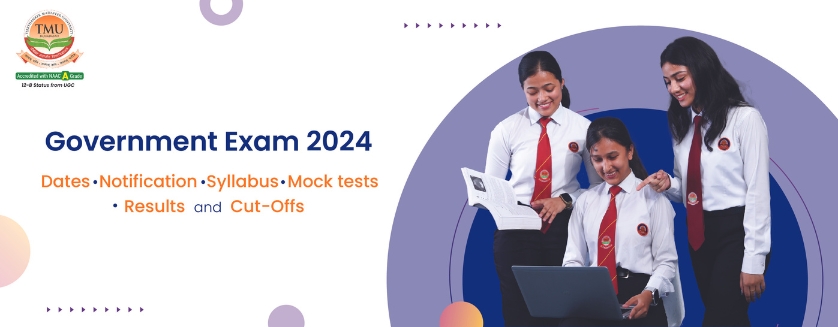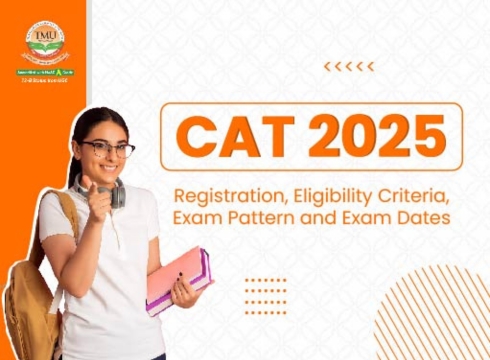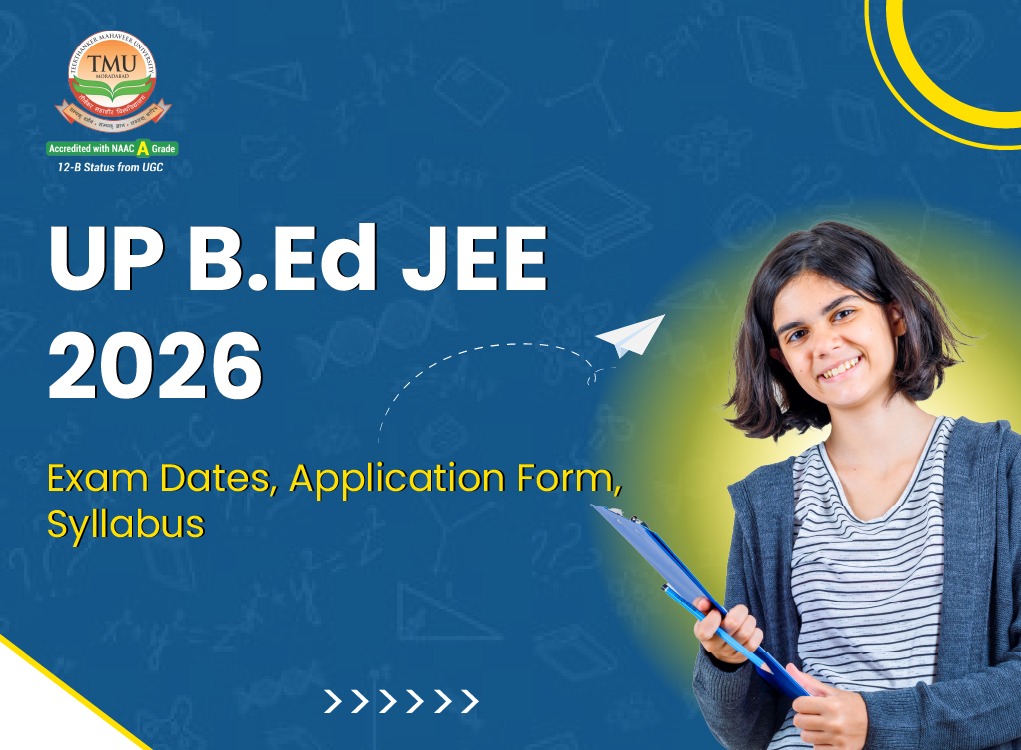Government Exam 2024, Dates, Notification, Syllabus, Mock tests, Results, and Cut-Offs
Table of Contents
Sarkari Exam is a website that helps users find official Sarkari Result (government job results). Users can find results for exams like UPSC Civil Services, SSC GD Constable, and RSMSSB GNM.
The website also has a section on different types of government jobs and how to apply for them.
- Civil Services Exams:UPSC: Includes IAS, IPS, and IFS.
- State PSCs: State-level administrative positions.
- Banking Exams:IBPS: Recruitment for public sector banks (PO, Clerk, Specialist Officer).
- SBI: Separate exams for PO and Clerk positions.
- Railway Exams:RRB: Includes RRB NTPC, RRB JE, and RRB Group D.
- Defence Exams:NDA: Entry into Army, Navy, and Air Force.
- CDS: For graduates to join military academies.
- Teaching Exams:CTET: Conducted by CBSE for central government schools.
- State TETs: Conducted by respective states.
- SSC Exams:SSC CGL, SSC CHSL, SSC JE: Various central government positions.
- PSU Exams:GATE: Used by many PSUs for recruiting engineers.
- Individual PSUs: BHEL, ONGC, and NTPC conduct their own exams.
The origin of government exams in India can be traced back to the British era. The Civil Services Exam, initially known as the Indian Civil Services (ICS) exam, was introduced by the British East India Company in the 19th century to select administrative officers. Post-independence, this evolved into the UPSC exams. Over the years, with the expansion of the public sector and the introduction of various new services, the range and scope of these exams have significantly widened.
Sarkari Exams India 2024
Here is the list of Government Exams that are set to be held in 2024:
| Conducting Body | Exam Name | Description |
| UPSC | Civil Services Examination (CSE) | Entry into prestigious services like IAS, IPS, IFS |
| SSC | Combined Graduate Level (CGL) Exam | Recruitment for Group B & C posts in various ministries |
| SSC | Multi Tasking Staff (MTS) Exam | Recruitment for lower-level positions |
| SSC | Stenographer Exam | Recruitment for stenographer posts |
| RRB | RRB NTPC (Non-Technical Popular Categories) Exam | Recruitment for various non-technical positions in Railways |
| RRB | RRB JE (Junior Engineer) Exam | Recruitment for technical positions in Railways |
| RRB | RRB Group D Exam | Recruitment for lower-level positions in Railways |
| IBPS | Probationary Officers (PO) Exam | Recruitment for Probationary Officer posts in Public Sector Banks |
| IBPS | Clerk Exam | Recruitment for Clerk posts in Public Sector Banks |
Teerthanker Mahaveer University
Apply for Admission
Click Here To Apply for Admission
Upcoming Government Exams
Important Note:Due to the nature of rolling notifications, specific dates cannot be confirmed for all exams. This table reflects estimated exam windows and result declaration timelines based on past trends. Always refer to the official websites for the latest information.
| Conducting Body | Exam Name | Description | Estimated Exam Date (2024) | Estimated Result Date (2024) |
| UPSC | Civil Services Examination (Prelims) | Screening stage for IAS, IPS, IFS etc. | Conducted (June) | Within a few weeks of the exam |
| UPSC | Civil Services Examination (Mains) | Mains written exam for shortlisted candidates | September - October | December - January (following year) |
| SSC | Combined Graduate Level (CGL) Tier-I | Tier-I exam for various Group B & C posts | Conducted (April-May) | 1-2 months after exam |
| SSC | Combined Graduate Level (CGL) Tier-II & Tier-III | Subsequent stages for shortlisted candidates | October - November (or later) | 1-2 months after the respective Tier exam |
| SSC | Multi Tasking Staff (MTS) Exam | Recruitment for lower-level positions | To be notified | 1-2 months after exam |
| SSC | Stenographer Exam | Recruitment for stenographer posts | To be notified | 1-2 months after exam |
| RRB | RRB NTPC (Non-Technical Popular Categories) Exam | Recruitment for various non-technical positions in Railways | To be notified | 1-2 months after exam |
| RRB | RRB JE (Junior Engineer) Exam | Recruitment for technical positions in Railways | To be notified | 1-2 months after exam |
| RRB | RRB Group D Exam | Recruitment for lower-level positions in Railways | To be notified | 1-2 months after exam |
| IBPS | Probationary Officers (PO) Preliminary | Screening stage for Probationary Officer posts in Public Sector Banks | To be notified (around October) | Within a month of the exam |
| IBPS | Probationary Officers (PO) Mains | Mains written exam for shortlisted candidates | November - December (or later) | Within a month of the exam |
| IBPS | Clerk Preliminary | Screening stage for Clerk posts in Public Sector Banks | To be notified (around August-September) | Within a month of the exam |
| IBPS | Clerk Mains | Mains written exam for shortlisted candidates | November - December (or later) | Within a month of the exam |
Government Exam Syllabus
Central Government Exams:
- UPSC Civil Services Exam (CSE): This prestigious exam covers a vast syllabus encompassing General Studies subjects like History, Geography, Polity, Economy, Science & Technology, Current Affairs, Ethics, Integrity & Aptitude. It also includes optional subjects candidates can choose from a wide range (Literature, Law, Management etc.). Find the detailed syllabus on the UPSC website ( https://upsc.gov.in/examinations/revised-syllabus-scheme) .
- Staff Selection Commission (SSC) Exams: The syllabus for SSC exams varies depending on the specific post. However, some common subjects include General Reasoning, Quantitative Aptitude, English Language, and General Awareness (including Current Affairs). You can find specific exam syllabi on the SSC website ( https://ssc.nic.in/).
- Railway Recruitment Board (RRB) Exams: Similar to SSC exams, the syllabus for RRB exams depends on the specific post. It typically covers General Intelligence & Reasoning, Arithmetic Ability, General Science, General Awareness (including Current Affairs), and sometimes a specific technical section for technical posts. Check individual RRB zone websites for detailed syllabi ( https://cr.indianrailways.gov.in/view_section.jsp?fontColor=black&backgroundColor=LIGHTSTEELBLUE&lang=0&id=0,4,1961).
- Institute of Banking Personnel Selection (IBPS) Exams: The syllabus for IBPS exams (PO, Clerk etc.) focuses on Reasoning Ability, Quantitative Aptitude, English Language, and Computer Awareness. The IBPS website provides detailed syllabi for each exam
https://www.careerindia.com/ibps/syllabus-c3.html).
Government Exam Mock Tests
Government exam preparation in India heavily relies on taking mock tests regularly. Here's a breakdown to help you find the best resources for government exam mock tests:
Official Websites:
- Union Public Service Commission (UPSC):While UPSC doesn't offer mock tests, they provide valuable resources like free sample papers and previous years' question papers. (https://upsc.gov.in/) under the "Examinations" tab.
- Institute of Banking Personnel Selection (IBPS):Similar to UPSC, IBPS offers free sample papers and previous years' question papers. ( https://www.ibps.in/index.php/recruitment/) under the "Candidate's Corner" tab.
Government Websites:
- Exam Next:This Government of India initiative offers mock tests for some central government exams.
Sarkari Exam Results
Government exam results, commonly referred to as "Sarkari Exam Results," are a significant milestone for candidates aspiring to secure government jobs in India. Here’s a guide on how to check Sarkari exam results, what to expect, and tips for post-result procedures.
How to Check Sarkari Exam Results
- Official Websites: Most government exam results are published on the respective official websites. Here ’s a list of some key websites:
- UPSC: www.upsc.gov.in
- SSC: www.ssc.nic.in
- IBPS: www.ibps.in
- RRB: Regional websites (e.g., www.rrbcdg.gov.in for RRB Chandigarh)
- State PSCs: Respective state PSC websites (e.g., www.mppsc.nic.in for Madhya Pradesh PSC)
- Steps to Check Results:
- Visit the official website.
- Navigate to the "Results" or "Exam Results" section.
- Find the link for the specific exam result.
- Enter required details such as roll number, registration number, or date of birth.
- View and download the result.
Government Exam Cut-Offs
Government exam cut-offs are the minimum marks a candidate needs to secure in order to qualify for the next stage of the selection process, or even to be considered for the job. These cut-offs vary depending on several factors:
- Exam Difficulty Level:If the exam is considered difficult, the cut-off might be lower. Conversely, a relatively easier exam might have a higher cut-off due to higher competition.
- Number of Vacancies: The number of available positions determines how many candidates will be shortlisted. Fewer vacancies lead to higher cut-offs.
- Category-wise Reservation:There are reservations for various categories like Scheduled Castes (SC), Scheduled Tribes (ST), Other Backward Classes (OBC), and Economically Weaker Sections (EWS). Cut-offs for these categories are usually lower compared to the general category.
Here are some resources to help you find government exam cut-offs:
Official Websites of Exam Conducting Bodies:
- Union Public Service Commission (UPSC): The UPSC website ( https://upsc.gov.in/examinations/cutoff-marks--) provides cut-off marks for previous years' Civil Services Examinations.
- Staff Selection Commission (SSC):The SSC website often doesn't publish official cut-offs. However, unofficial cut-offs based on previous years' results are available on various websites and forums.
Conclusion
Government exams in India offer a gateway to secure, stable careers with good benefits. This guide has provided a comprehensive overview of these exams, including upcoming schedules, notifications, syllabi, and resources for preparation. Remember, cracking government exams requires dedication, strategic planning, and consistent effort.
Here are some key takeaways to keep in mind:
- Regularly visit the official websites of the exam conducting bodies for the latest updates and notifications.
- Familiarize yourself with the specific exam syllabus and focus your preparation accordingly.
- Utilize mock tests to gauge your preparedness, identify weak areas, and improve your time management skills.
- Explore both free and paid resources to find the best study materials and mock tests that suit your learning style and budget.
- Don't be discouraged by the initial difficulty. Stay focused, keep practicing, and strive for continuous improvement.
By following these tips and utilizing the information provided in this guide, you can increase your chances of success in your chosen government exam and embark on a rewarding career path.
Disclaimer:The information provided above is based on online sources and past exam patterns. Facts may change over time. For the most accurate and up-to-date information, please visit the official websites of the particular conducting body.
FAQs
Q1: Which government exam is best?
Ans:Here are some top government exams in India:
- UPSC Civil Services Exam: For prestigious roles like IAS, IPS, and IFS.
- SSC CGL: For various Group B and C posts in central government departments.
- IBPS PO: For Probationary Officer positions in public sector banks.
- SBI PO: For Officer positions in the State Bank of India.
- RRB NTPC: For non-technical positions in Indian Railways.
Q2: Which government job has the highest salary?
Ans:The highest-paying government jobs include roles such as:
- Civil Services (IAS, IPS, IFS).
- Judges in Judicial Services.
- Senior Military Officers.
- Scientists in Research Organizations.
- Executives in Public Sector Undertakings (PSUs).
- Central Bank Officials, and Specialist Doctors.
Q3: Which government job is best for girls?
Ans:Here are some government exams in India generally considered less competitive than others, which can be a good option for anyone regardless of gender:
- SSC Multi Tasking Staff (MTS) Exam: This exam recruits for lower-level positions and often has a high vacancy rate.
- Stenographer Exams (Central & State): These exams focus on stenography skills (shorthand and typing).
- Lower Level RRB Group D Exams: These exams fill positions like Assistant Track Maintainer, Helper in Stores etc.
- Data Entry Operator Jobs: Various government departments recruit data entry operators.
Q4: Which exam has no age limit?
Ans:Few government exams have no age limit! Look into UGC NET (Assistant Professor only) and CSIR-NET (Lectureship) for opportunities without a cap. Remember, some roles might favour younger candidates. Always check the official notification for the latest age criteria.















